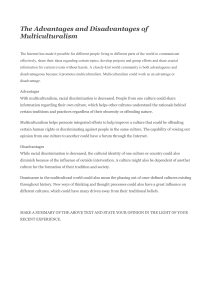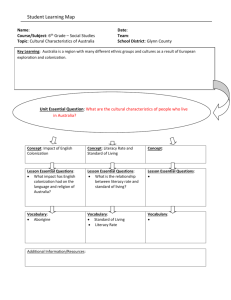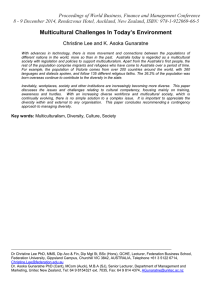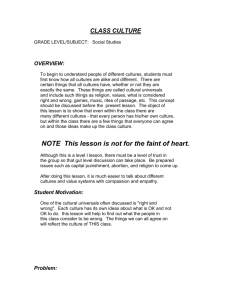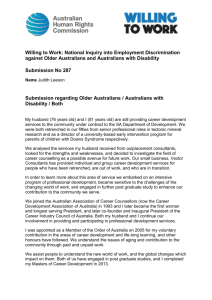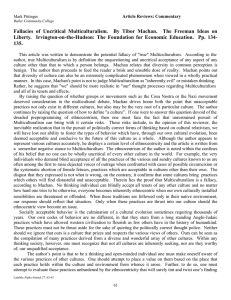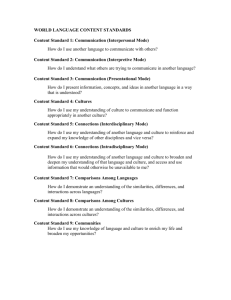what does multiculturalism mean
advertisement
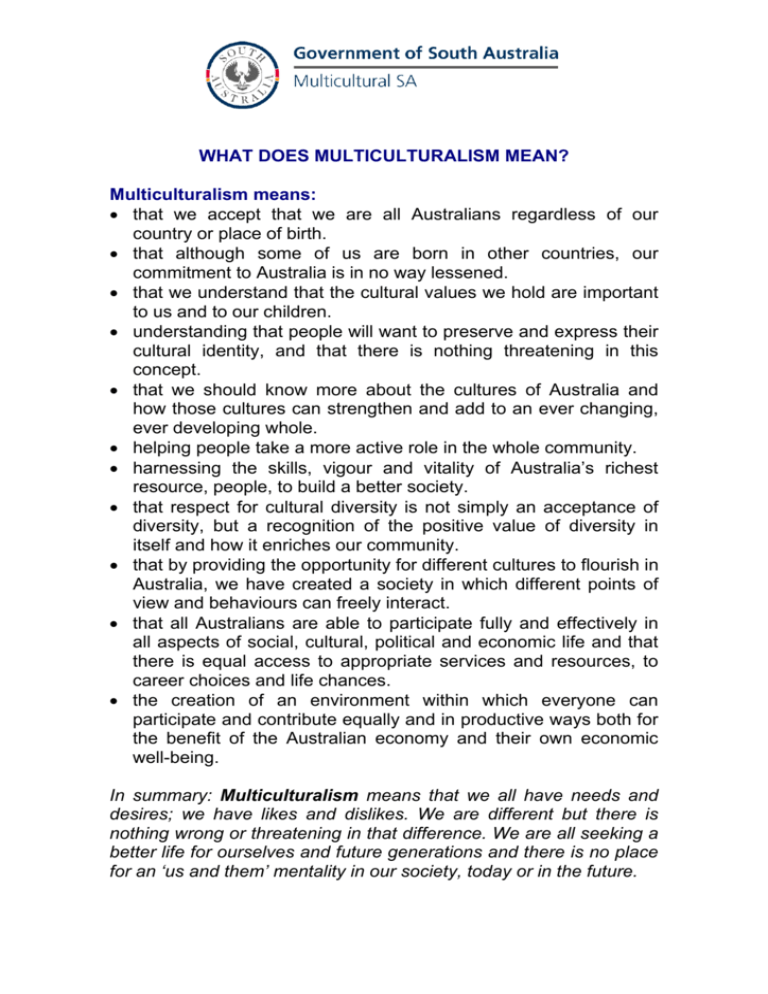
WHAT DOES MULTICULTURALISM MEAN? Multiculturalism means: that we accept that we are all Australians regardless of our country or place of birth. that although some of us are born in other countries, our commitment to Australia is in no way lessened. that we understand that the cultural values we hold are important to us and to our children. understanding that people will want to preserve and express their cultural identity, and that there is nothing threatening in this concept. that we should know more about the cultures of Australia and how those cultures can strengthen and add to an ever changing, ever developing whole. helping people take a more active role in the whole community. harnessing the skills, vigour and vitality of Australia’s richest resource, people, to build a better society. that respect for cultural diversity is not simply an acceptance of diversity, but a recognition of the positive value of diversity in itself and how it enriches our community. that by providing the opportunity for different cultures to flourish in Australia, we have created a society in which different points of view and behaviours can freely interact. that all Australians are able to participate fully and effectively in all aspects of social, cultural, political and economic life and that there is equal access to appropriate services and resources, to career choices and life chances. the creation of an environment within which everyone can participate and contribute equally and in productive ways both for the benefit of the Australian economy and their own economic well-being. In summary: Multiculturalism means that we all have needs and desires; we have likes and dislikes. We are different but there is nothing wrong or threatening in that difference. We are all seeking a better life for ourselves and future generations and there is no place for an ‘us and them’ mentality in our society, today or in the future. WHAT IS CULTURE? "A WAY OF LIFE OF A GROUP OF PEOPLE, THE BLUEPRINT FOR LIVING WHICH GUIDES THE ACTIONS, THOUGHTS AND FEELINGS OF THAT GROUP AND MAKES THEM IDENTIFY WITH OTHERS IN IT". Our culture is our routine of sleeping, bathing, dressing, eating and getting to work. It is our household chores and the actions we perform on the job, the way we buy goods and services, write and mail a letter, take a taxi or board a bus, make a telephone call, go to a movie, or attend church. It is the way we greet friends or address a stranger; the admonitions and scoldings of our children and the way they regard what we consider good and bad manners, and even to a large extent what we consider right and wrong. All these and thousands of other ways of thinking, feeling and acting seem so natural and right that we may even wonder how else anyone could do it. But, to millions of other people in the world, every one of these acts would seem strange, awkward, incomprehensible, unnatural or wrong. The people would perform many, if not all of the same acts, but they would be done in different ways that to them would seem logical, natural and right. Culture is not only the way we do things. It is also our attitudes, thoughts, expectations, goals and values. It is the rules of our society - the norms that tell us what is and what is not acceptable in that society. We learn these through complex patterns of socialisation, first from our parents who introduce us to the world of ideas and values, then at school and then from a whole range of people and institutions that affect our lives. Multiculturalism has contributed to a gradual change in lifestyle in South Australia. The society is now exposed to a proliferation of restaurants, diverse forms of entertainment, greater recreational use of open spaces, radical and beneficial changes in food habits, less conformism in dress and behaviour, curiosity about other cultures and openness to new ideas and to changes. We should be prepared to learn from other cultures, and never to accept that our way of doing things is necessarily the best way, just because that is the way to which we are accustomed.
